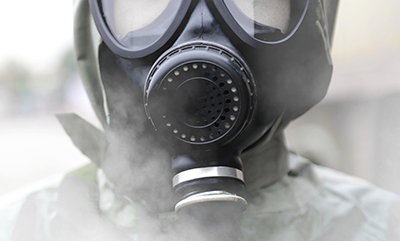Military Duties No Excuse for War Crimes.
 If a physician wants to put the military mission before his or her medical obligations to do no harm, by obeying an unlawful order, he or she must resign from practicing medicine, School of Public Health ethicist and Professor George Annas argues in an editorial in the South African Medical Journal.
If a physician wants to put the military mission before his or her medical obligations to do no harm, by obeying an unlawful order, he or she must resign from practicing medicine, School of Public Health ethicist and Professor George Annas argues in an editorial in the South African Medical Journal.
Annas examines the case of Wouter Basson, a South African cardiologist who was charged with violating medical ethics during the time he was in the military, directing secret projects to weaponize chemical and biological substances for warfare. The Professional Conduct Committee (PCC), charged with deciding whether he should retain his license to practice medicine, dismissed Basson’s arguments that his military obligations superseded his medical responsibilities, finding that “medical ethics during war and peace are identical.”
Annas writes that, outside of a few South American countries, it has been rare for licensing boards to charge physicians with war crimes or crimes against humanity.
“No state licensing body in the USA has taken any action against US military or CIA physicians who have participated in torture or inhuman treatment of prisoners at CIA black sites and Guantanamo Bay,” Annas writes. “This is shameful, although somewhat understandable, as the US government has done all it can to keep the identities of the physicians working for and with the CIA and the US military a secret.”
Preventing physicians who have engaged in crimes against humanity from practicing medicine is done not to punish them, Annas says, but to “protect the public and the medical profession.”